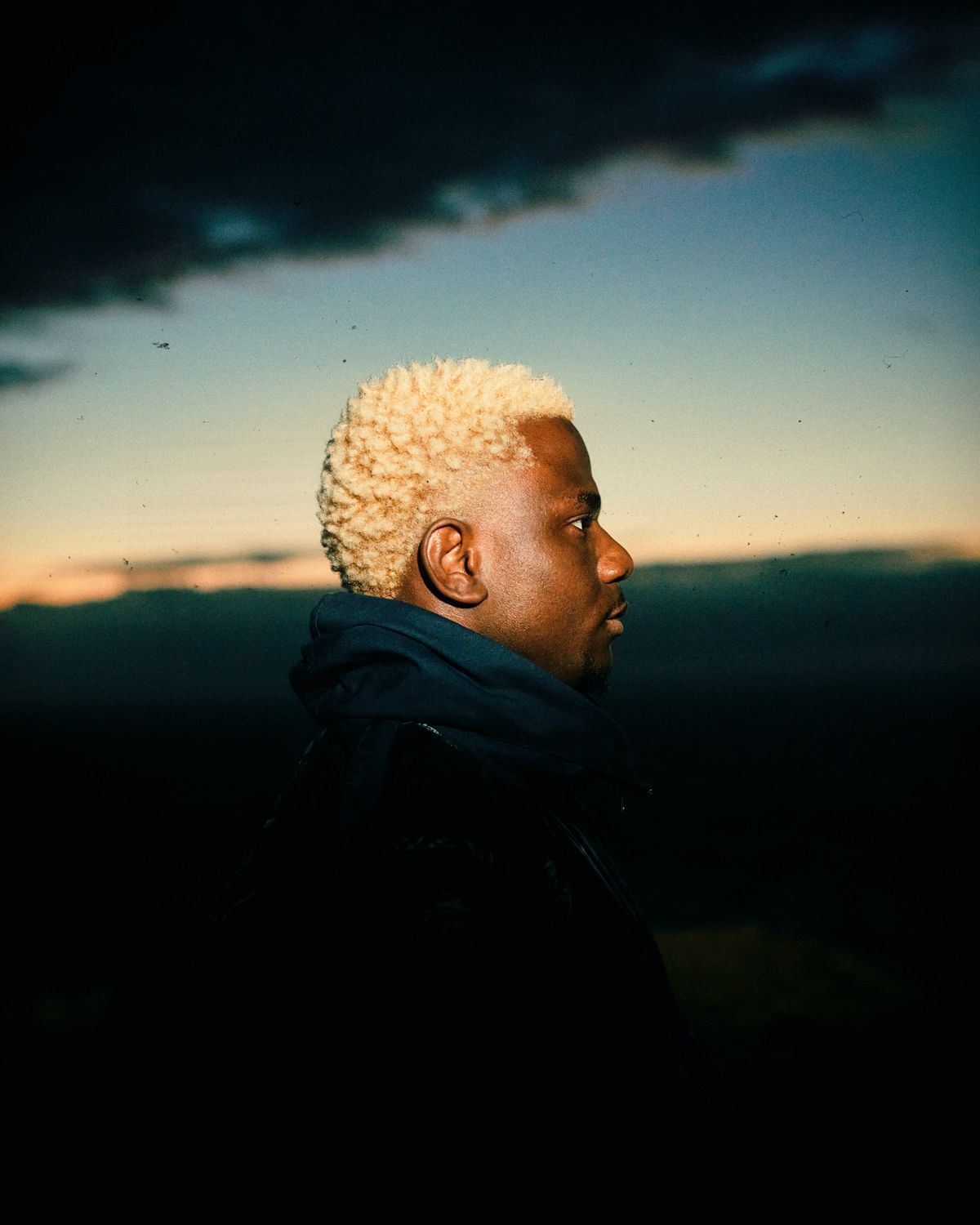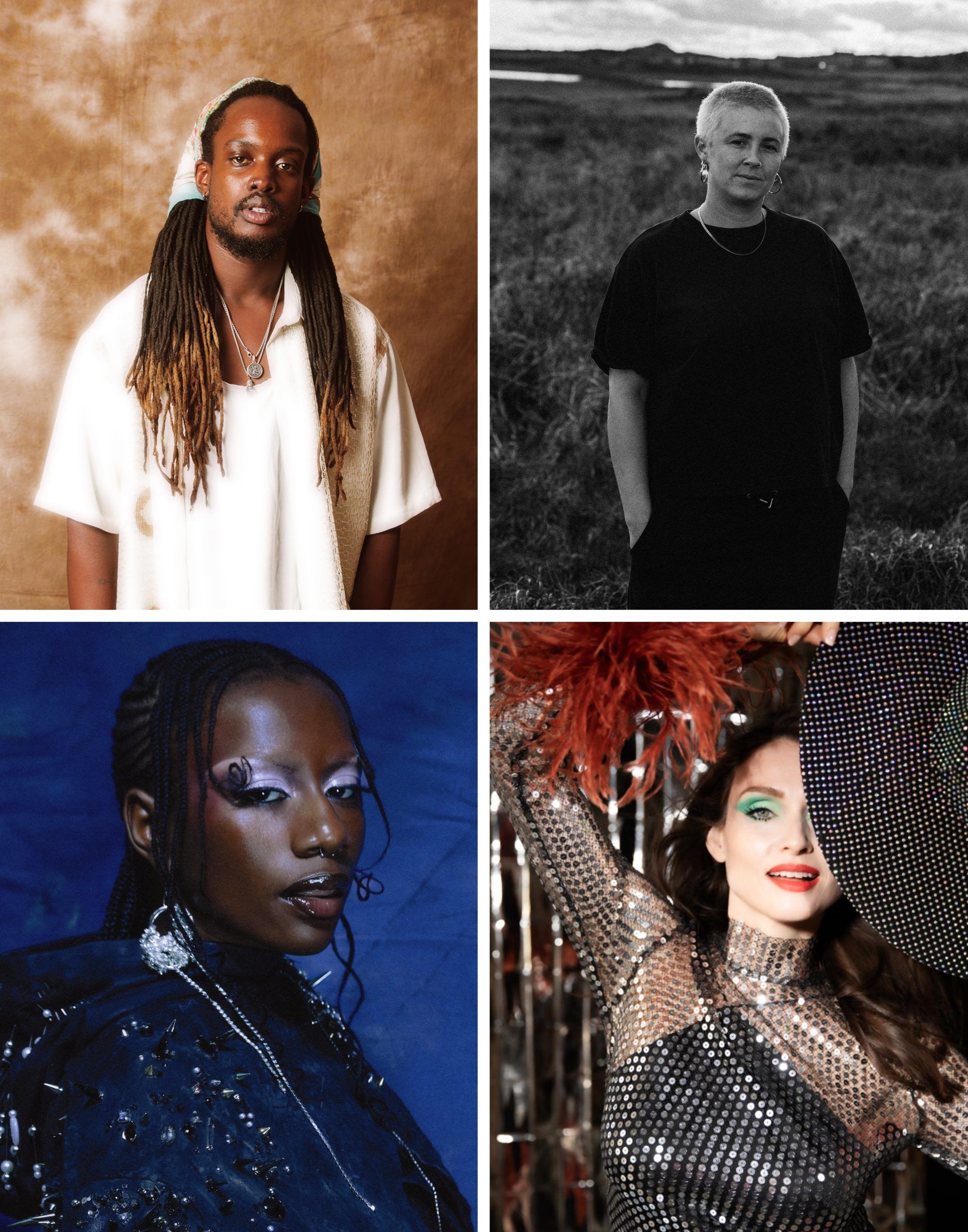Road To Nirvana is the first musical offering from Nigerian filmmaker and singer-songwriter Godwin. The EP is an introduction to his musical talent that goes deeper than expected. Inspired by his journey of grief and loss, it is an honest and personal exploration of healing and the path he has taken to get there.
As a filmmaker alongside his brothers with their film collective, The Critics Company, music became his solace and a way of expressing himself after the loss of his mother. Reconciling with feelings of emptiness and finding a way back to happiness led him to create a project that touches on the many facets of grief and aims to take him back to the state of Nirvana and the peace he was searching for.
Since the release of the project earlier this year, Godwin has entered the musical space as a breath of fresh air, not just in terms of the music itself but also his soulful voice, which is unique and pushes beyond what you would expect when you see him.
Expanding his creativity beyond filmmaking and touching on various aspects of his life in the stories he is telling and the message he is putting across in his music is something that anybody can find comfort in when you play the project through. Not to mention the visual aspects that complement each of the songs in the project, all the visuals on the project were directed alongside his brothers, thus tying that creative bond between them, and their results are visually stunning and explore the music much further in the visual sense.
Speaking with 1883, Godwin discusses growing up in Kaduna, Nigeria, making Road To Nirvana, finding love and happiness, the meaning of Nirvana, and more.
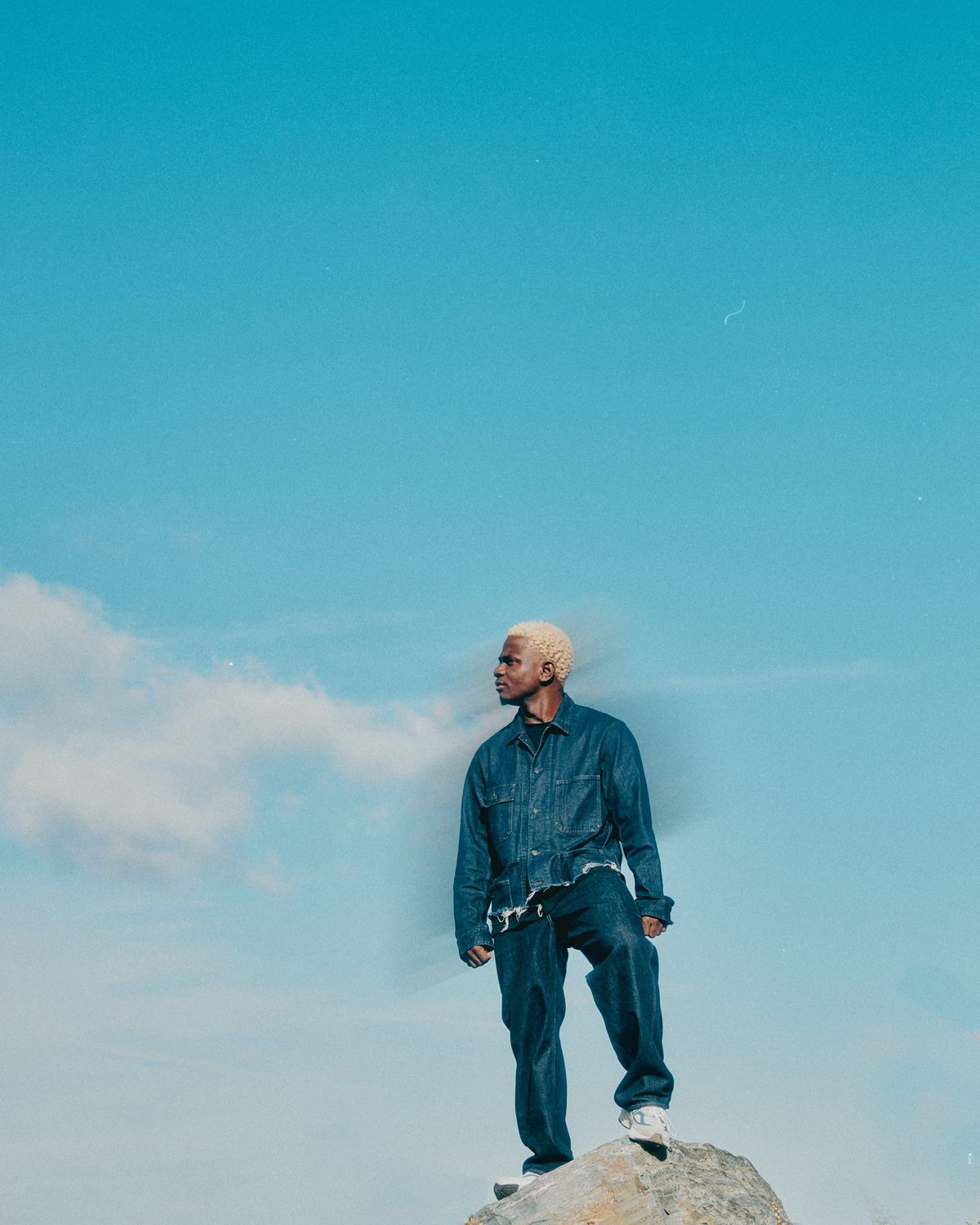
Tell me about your musical beginnings and where that began for you.
Growing up, my dad collected many records from around the world, which was a hobby for him. I woke up to jazz playing, or rap or French music on the speaker. Around nine or 10 years old, I was singing to all of these foreign songs and I feel like it did something to my voice. I fell in love with music at a very young age and it was always in the back of my mind to do it. I was born in Kaduna, Nigeria, which was a super religious place to grow up. I was also involved with the choir but it wasn’t my thing because I was a timid boy and it felt like a competition at some point.
My introduction to art was with film; I started making films with my brothers who inspired me. We were film buffs and currently run a film collective called “The Critics Company” that started in 2012. But in my mind, it was always just this urge to make music because it was something very comfortable with. What propelled me into making music was grief because I lost my mother in 2017 and I felt like I needed to do something that would help me deal with everything I was feeling inside. That was when I started working on the project Road To Nirvana, which came from various inspirations. It was the full body of work by the end of the year, and that was an introduction to me accepting music or something I wanted to do.
Were there things around you that made you gravitate towards creativity as a way of expressing yourself?
You’re either curious or not, which can translate into being curious into practical things. It was art because I was exposed to art from an early age and I’ve always wanted to be somebody who creates. Growing up, there was not much happening; everything happens in Lagos. We were in an environment that helped us make decisions because nobody was looking at us so there wasn’t any pressure. Everybody was minding their business. I will always say my brothers helped me because we just inspired each other to want to make stuff. From then on, the confidence to create just grew.
How has your work as a filmmaker and creator been able to lend itself to your music?
Now more than ever, it feels like one thing. Sometimes, something I randomly write somewhere that inspires the film or inspires an image in my head. Now, more than ever, all these creative arts or mediums are just one piece at the end of the day; it’s just the approach and material difference. It’s just been the same thing for me. Film is just as important as the music itself; it all starts with what I see.
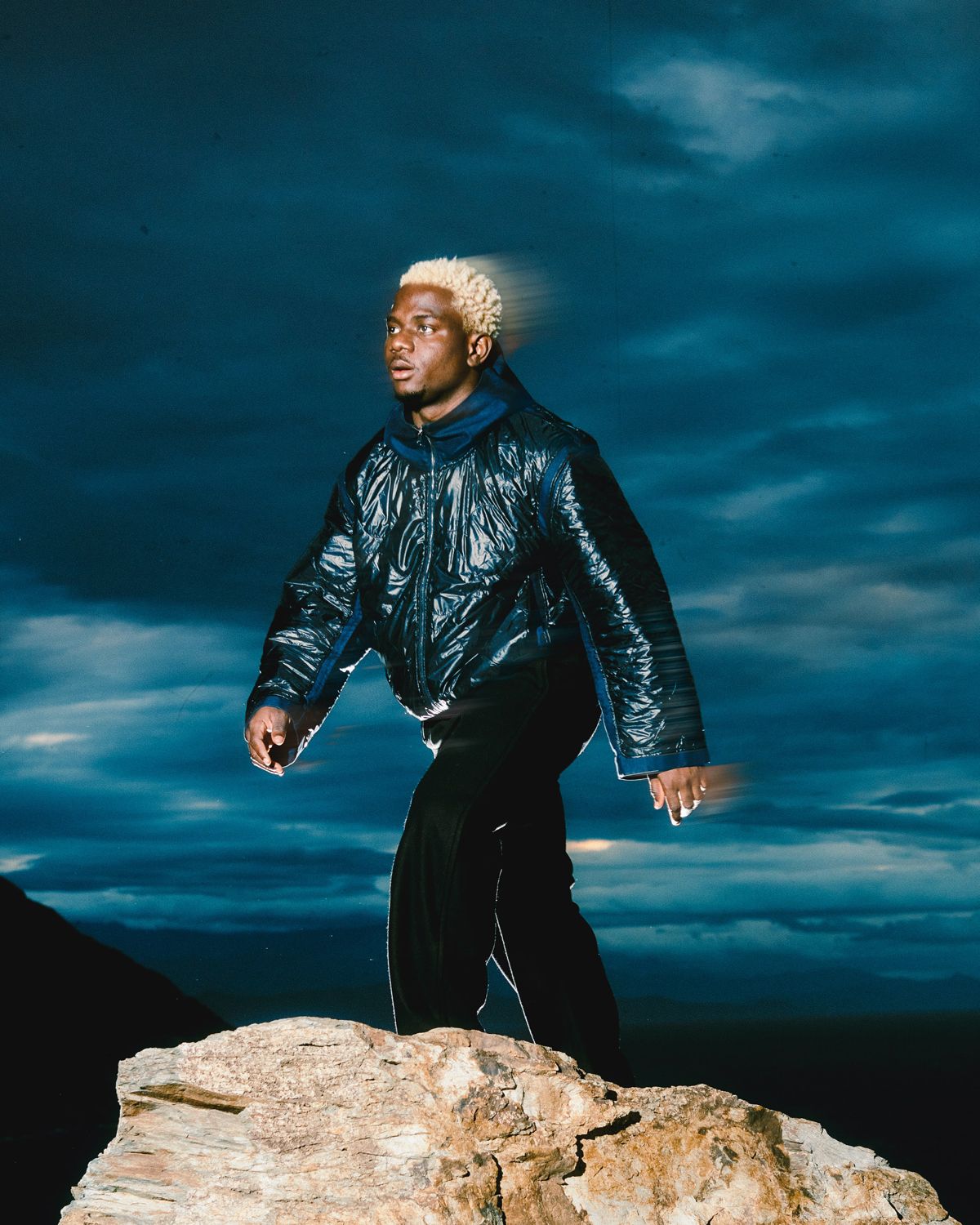
You mentioned that your shift to music was due to the grief of your mother’s passing. How did music become that medium that helped you process and heal from that situation?
Grief is so big and different for everybody; everyone has a different way of processing it. For me, it was just the emptiness. My mom was everything. Losing her… I just felt empty. That is the best way to describe it. I like to use an example that when something is bad, you need to introduce something good into it. I was in that space where I was not so good on the inside. I just realized, honestly, it’s beautiful things that can be born out of grief. I just channelled the grief into a project. It healed me, the Godwin, a few years before the project and the post-project, which is very different. It made me feel more comfortable talking about this particular thing. I just turned the grief into something really good; I channelled it into an art form that would make me feel good and reassure me.
Your EP Road To Nirvana came out earlier this year, what does it mean to you?
Before making the the project, it was supposed to be an EP for one audience member: myself. It was a very personal one because I just wanted to see what it would feel like when I made it. It’s the revelation that comes with putting out music — or art in any sense — to see people connect to it on such a level. At that point, it does not just feel like your music anymore. I get many long paragraphs from people about how particular songs helped them go through this particular phase of their lives. It makes me think, “Oh, that’s why I made it.” It’s the feeling I can never get used to. I’m happy that it can be a tool because that is why it happened in the first place. It’s very refreshing and inspires me to want to keep going and to keep making stuff that would have a positive impact on the people who get to witness it.
Post Road To Nirvana, it feels like there’s so much love inside of me; so much love to give and receive. I am way happier than I was a few years ago. I’m finding a way to channel that into what comes subsequently regarding people with projects and everything. It’s just going to be inspired by love. This is not a sad boy anymore. I’m just looking forward.
What does the word Nirvana mean to you?
Nirvana translates to a place of peace for me. The thought of where you go to find peace inspired me to think of Nirvana. In the broad sense of everything with the Buddhist culture and tradition, the closest translation would be a paradise where you go, and there are no worries; you live and enjoy life.
The inspiration for picking such a name came from listening to a song by Jacob Banks, who makes beautiful music. It’s a song called “Slow Up,” and I remember listening to it on a particular evening. It goes, “What I’ve learnt from a traveller. There’s no road that can lead to Nirvana.” It just made me question a lot because I felt like I listened to the song at a significant time. I was just curious: If there’s no road to Nirvana, what would the road to Nirvana feel like? Because it’s a destination, it means you can go there. While questioning all of these things, I realized that constantly trying to go through every day is the journey towards Nirvana. You wake up, do your job, and try to suffer. That’s a journey in its sense. That was really what inspired it because it’s a journey of grief. It’s a journey of love.
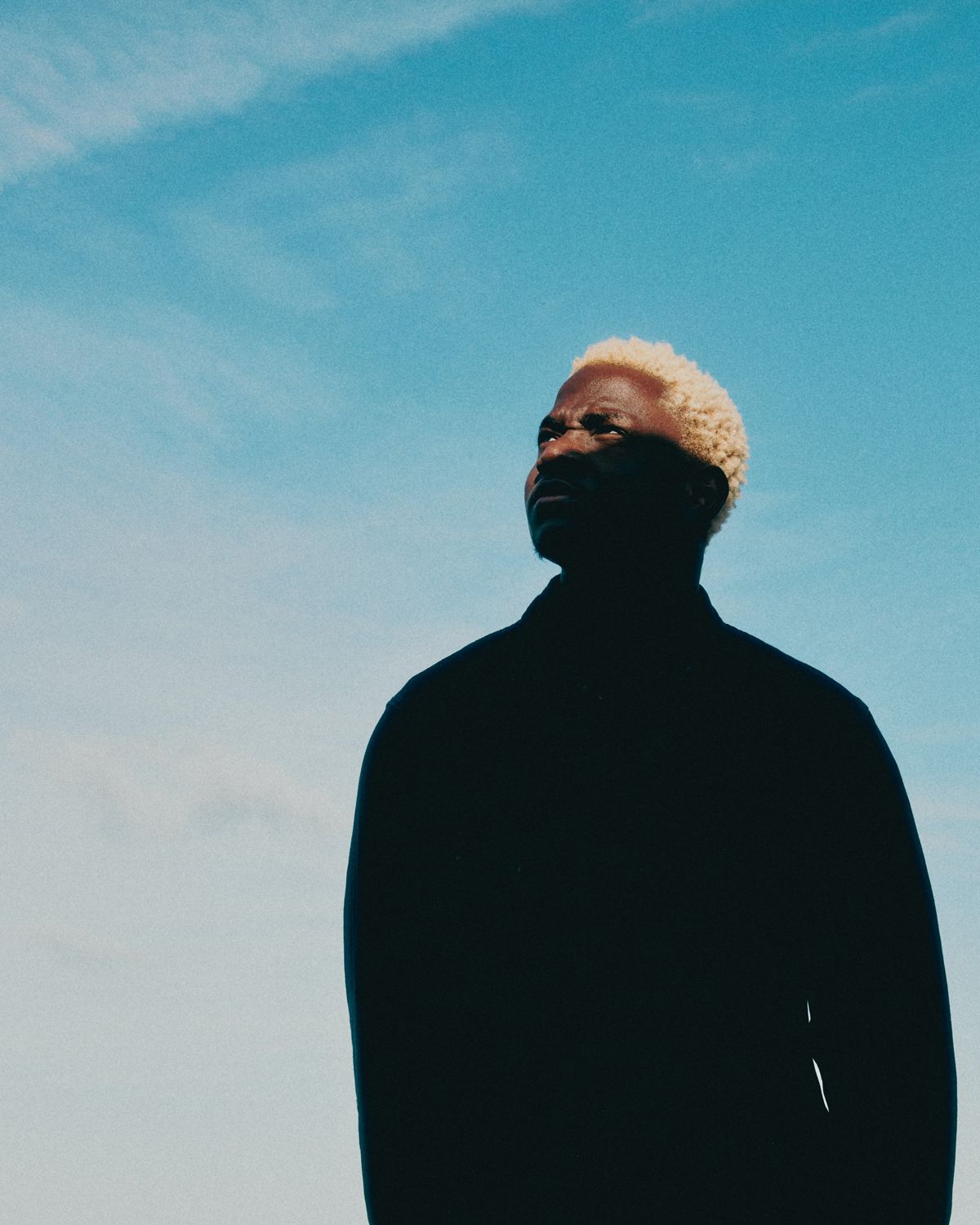
“Proud of You” is also a powerful song on the EP. The video for that one was stunning, and it had such a powerful message and story that you told through the video and the song. How did you come up with that treatment?
Before the release of the EP. “Proud of You” was the only song for which I could not create a visual. It felt too personal. A few months down the line to lease, it just really occurred to me that I’ve always had an inspiration for an opportunity to pass the message on dyslexia and what it means to the Nigerian education system. When I was in school, I was a pretty good student I was doing pretty good in school. But then we changed houses to different locations, and I had to switch schools. I had a whole month trying to fit into this new school; I was not as little a lesson as I used to be. There were a lot of mean words from teachers about the fact that they were saying so dumb things to me. That thought came to mind. I remember when I was younger, the words got to me, and it’s something I believed.
I did some research and came across many things about certain articles; I came across the word dyslexia for the first time. I realized that it’s such an alien word to me, and even the teachers don’t know if it’s a concept or a word that certain people find more challenging to learn than others. It just stuck to me. It occurred to me that we should not all be aiming to be geniuses. That is the culture in Nigeria — you have to be good. It’s just an excellent opportunity to touch on such a story. In the video, a boy finds a football. For me, it was art, but it’s something that I wanted to show for people to see that message and understand what that experience is like for many kids and people who go through it.
You worked with your brothers to make the videos for the project. Considering you’ve made films with them before, how was it different this time, as this was for your own music?
Before I even approached them, it was weird because the name of the collective was The Critics Company. My brothers are very critical, just like the name implies. They told me the music was shit on that day, and it’s a good thing I didn’t listen to them because I probably would have not put out music. They were going to be my first ear for the music. When I played the music, my brother was very emotional — he was crying, he was feeling some way. I thought, “Oh this is something special because my brother doesn’t crack. I’ve never seen emotion from him at this particular level before.” It was inspiring and I was sitting there for a minute and realizing that they were pouring so many ideas on what we can do with music. This is not an idea that came from all of us. More often, that’s how we work; a collective idea would create something from it. I presented this to them, something that felt very personal to me. They were just as equally involved in it so it was just very inspiring to see. We travelled around Kaduna to make a video for the songs. We went to a neighbouring state to shoot specific videos; it was a beautiful process. I owe that process to why I’m still doing music because, like I said, they said it was nonsense.
What do you want listeners to take from this project?
As far as the sonics of the music goes, it’s visual as it implies the lyrics. It’s something you see when you hear. Then, when you go into the music, it has a healing feature. It’s very obvious now, but I never really thought “Proud of You” as a song was going to be something that everybody else could connect to. When I wrote it, I wrote a song from my mom’s perspective. On the project, there’s stuff that people can connect to on a different level. It’s just various stages of grief, and we put them all into one. I’m proud of it.
What are you looking forward to in terms of this next chapter? How are you feeling about everything that’s coming in the future?
Not just as an artist, but even as a person, I have a lot of love to give. I’m looking forward to translating all of this love into things that are to come: music, people, relationships, all of this. I’m just ready for the love to inspire the next phase of my life. So, that’s going to be the theme. I’m very sure of that.
Interview Seneo Mwamba
Photography Samuel Fabia

